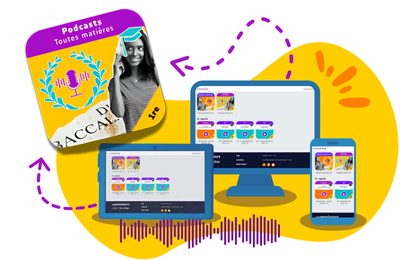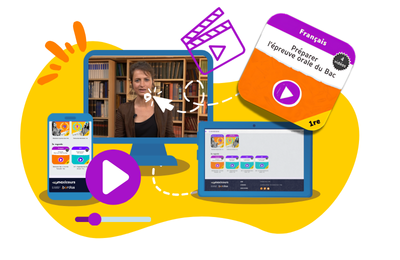Everyday life in Britain
- Fiche de cours
- Quiz et exercices
- Vidéos et podcasts
British currency: one pound = £1 = 100 pence.
Careful!
GB = Great Britain = England + Scotland +
Wales.
The UK = The United Kingdom = GB + Ulster.
The British Isles = The UK + Eire.
English is the common
language, London is the
capital. The Union Jack is
the flag of the United Kingdom.
You can reach Great Britain by plane, by ferry, or by train and
car with the tunnel.
The lunch is light and usually composed of a sandwich and a chocolate bar.
The main meal is at about six
o'clock:
– one course (plat): meat and
various vegetables.
– speciality: the steak and kidney
pie.
– sometimes a dessert: an apple pie or a
pudding.
On many occasions during the day: a cup of tea with some biscuits. Crisps and sweets for children.
– Nursery school: until 5 years old.
– Primary school: from 5 to 11 years
old.
– Secondary school: from 11 to 16 or 18.
There are three kinds of schools:
– public schools (fee paying), for the
upper class;
– grammar schools (free or fee
paying);
– comprehensive school (free).
Remember
The name of the class levels are different:
– 6e = 1st form;
– Terminale = upper sixth.
Exams:
- GCSE: General certificate of secondary
education, at 16.
- "A" Levels: Advanced levels, at
18. Passport to university.
- Degrees of
University:BA/BSC
(licence);
MA/MSC
(maîtrise);
PhD
(doctorat).
– Gardening: mowing the lawn, watering the flowers...
– Pets: many families have a dog or a cat.
– Sport: football, rugby, golf, tennis and cricket are the most popular.
– The pub: favourite meeting place with a pint of beer (stout, bitter or lager). Closing at 11. pm.
Popular papers: The Sun, The Daily Mirror, The Daily Mail...
Sunday papers: The Observer, The Sunday Times...
ITV and Channel four are among the numerous cable and private channels.
– St Valentine's Day: February 14th.
– Easter: March or April.
– April Fool's Day: April 1st.
– Trooping the Colours: 1st or 2nd Saturday of June to celebrate the Queen's birthday.
– Midsummer's Day: June 24th.
– August Bank Holiday: last Monday of August.
– Halloween: October 31st.
– Guy Fawkes' Day: November 5th.
– Christmas Day: December 25th.

Des quiz et exercices pour mieux assimiler sa leçon
La plateforme de soutien scolaire en ligne myMaxicours propose des quiz et exercices en accompagnement de chaque fiche de cours. Les exercices permettent de vérifier si la leçon est bien comprise ou s’il reste encore des notions à revoir.

Des exercices variés pour ne pas s’ennuyer
Les exercices se déclinent sous toutes leurs formes sur myMaxicours ! Selon la matière et la classe étudiées, retrouvez des dictées, des mots à relier ou encore des phrases à compléter, mais aussi des textes à trous et bien d’autres formats !
Dans les classes de primaire, l’accent est mis sur des exercices illustrés très ludiques pour motiver les plus jeunes.

Des quiz pour une évaluation en direct
Les quiz et exercices permettent d’avoir un retour immédiat sur la bonne compréhension du cours. Une fois toutes les réponses communiquées, le résultat s’affiche à l’écran et permet à l’élève de se situer immédiatement.
myMaxicours offre des solutions efficaces de révision grâce aux fiches de cours et aux exercices associés. L’élève se rassure pour le prochain examen en testant ses connaissances au préalable.

Des vidéos et des podcasts pour apprendre différemment
Certains élèves ont une mémoire visuelle quand d’autres ont plutôt une mémoire auditive. myMaxicours s’adapte à tous les enfants et adolescents pour leur proposer un apprentissage serein et efficace.
Découvrez de nombreuses vidéos et podcasts en complément des fiches de cours et des exercices pour une année scolaire au top !

Des podcasts pour les révisions
La plateforme de soutien scolaire en ligne myMaxicours propose des podcasts de révision pour toutes les classes à examen : troisième, première et terminale.
Les ados peuvent écouter les différents cours afin de mieux les mémoriser en préparation de leurs examens. Des fiches de cours de différentes matières sont disponibles en podcasts ainsi qu’une préparation au grand oral avec de nombreux conseils pratiques.

Des vidéos de cours pour comprendre en image
Des vidéos de cours illustrent les notions principales à retenir et complètent les fiches de cours. De quoi réviser sa prochaine évaluation ou son prochain examen en toute confiance !









